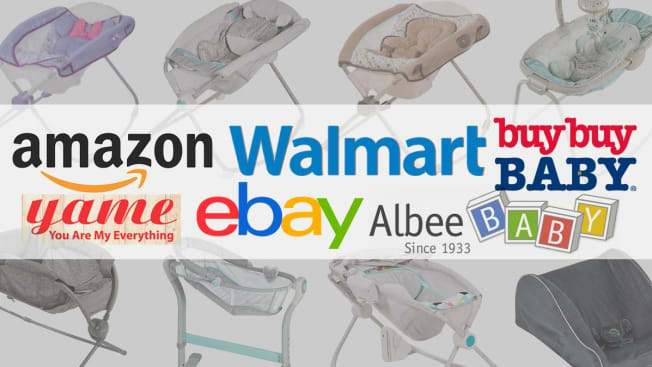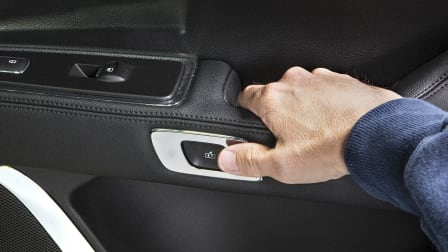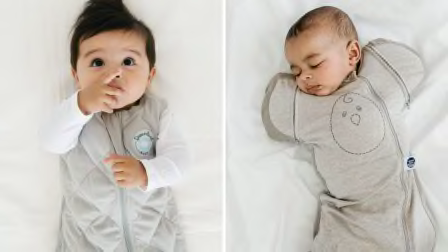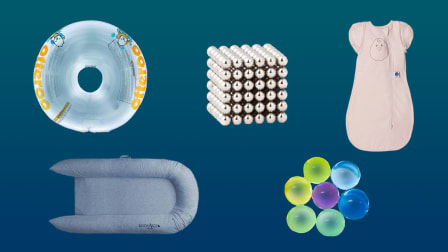Buy Buy Baby and Walmart Join Amazon and eBay in Banning Infant Inclined Sleepers
Is this the end of the line for the products, which have been linked to 73 deaths?

Walmart and Buy Buy Baby are pulling all infant inclined sleepers—even those that have not yet been recalled—from their store shelves and websites. The decision comes after Amazon, eBay, and two smaller retailers—Albee Baby and You Are My Everything—said earlier this week that they would also ban the products, which have been tied to at least 73 infant deaths.
The announcement follows a letter Consumer Reports sent last week to 15 major retailers, online marketplaces, and trade groups urging them to stop selling infant inclined sleepers, which position babies at an angle between 10 and 30 degrees.
In April, CR tied the Fisher-Price Rock ’n Play Sleeper and Kids II Rocking Sleepers to dozens of deaths, prompting the recall of about 5 million inclined sleepers. And a study commissioned by the Consumer Product Safety Commission recently concluded that the sleepers increase the risk of suffocation and are unsafe for infant sleep.
Based in part on those findings, the CPSC warned consumers not to use infant inclined sleepers and voted to move forward with a proposed rule to prohibit them. But it will take months for any proposed rule to take effect, and in the meantime, several other infant inclined sleepers remain on the market.
To read the latest news on these products, see CR's ongoing coverage of infant inclined sleepers.
What’s Next for Inclined Sleepers?
While some manufacturers continue to sell the products, recent actions from regulators and retailers could signal the beginning of the end of this product category.
“Manufacturers of baby products should be embarrassed,” says Oriene Shin, CR’s policy counsel for home and product safety. “They missed their chance to take the lead on protecting infants from unsafe sleep environments, and now retailers and platforms are stepping up in their absence.”
Facebook Marketplace and Craigslist in particular should follow suit, said Jan Hinson, a lawyer in Greenville, S.C., whose grandson almost died in a Rock ’n Play Sleeper but was found in time to be revived. The two popular secondhand online marketplaces still list recalled infant inclined sleepers for sale, as CR recently reported. And though it is illegal for stores or individuals to sell recalled products, the websites have not enforced that policy effectively.
When CR searched Facebook Marketplace and Craigslist at the end of October, we found hundreds of recalled products for sale.
Still, even if all major retailers remove the products, that won’t fully eliminate the risk. “While stopping sales gets the products off store shelves, we also need recalls to get them out of homes,” said Nancy Cowles, executive director of Kids in Danger, a child safety advocacy organization.
It also may take government legislation to stop manufacturers from producing more infant inclined sleepers. “Not only do manufacturers need to step up and recall their products, but Congress also needs to pass critical legislation—namely the Safe Sleep for Babies Act—to ban these products,” Weintraub at the CFA says. “All of those collective pieces—from regulators, retailers, and manufacturers—will effectively solve the problem and protect infants from the hazards posed by inclined infant sleep products.”




















